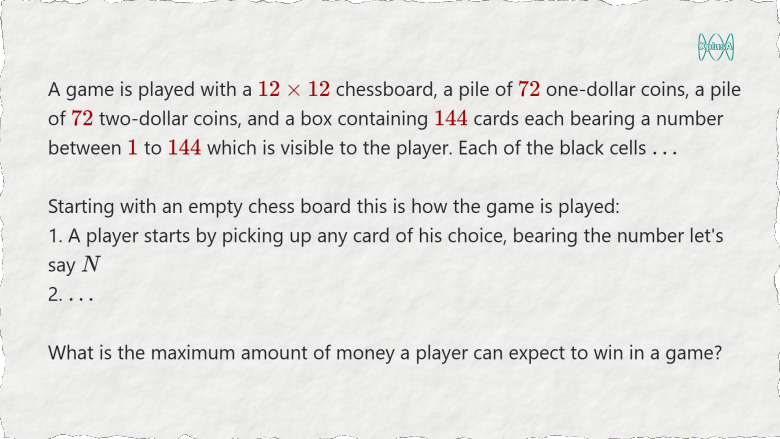The Easiest Difficult Problem You Have Ever Seen.

This seemingly complex problem based on a very basic concept of combinatorics, appears difficult, but can be solved easily using a very basic counting technique.

Problem contributed by debosmita1729
-----------book page break-----------
When a player chooses a number the multiples of that number changes its state from filled to vacant or vice versa.
Since initially all cells are empty, we can say that an odd number of swaps will make a cell filled and an even number of swaps will leave the cells empty. Each cell will change its state as many number of times as its total count of divisors. This will remain fixed no matter in which order the divisors are chosen.
Therefore, we can conclude that a player will win a fixed amount of money, irrespective of the order in which he chooses the cards.
Now, the numbers in the set $\{1, 2, 3,... 144 \}$ which have an odd number of divisors will end up in a filled state, while the numbers that have an even number of divisors will end up in empty state
As we learnt from this concept of , all integers, except perfect squares, have an even number of divisors while perfect squares have an odd number of divisors. Therefore, of all the cells in the given chessboard, the cells numbered with perfect squares will end up in a filled state, while all other cells will be in empty states.
In the set $\{1, 2, 3,... 144 \}$ there are $12$ numbers that are perfect squares, out of which $6$ are odd and $6$ are even.
Therefore, the total amount of prize money will always be $2 \times 6 + 6 = 18$ no matter in what order the numbers are chosen.